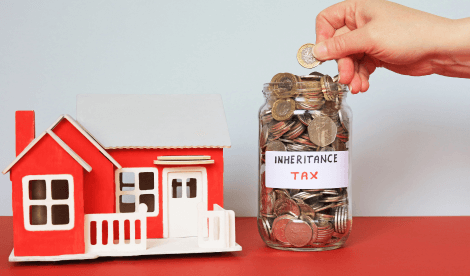Jo White FCA CTA
- Tax Partner
- +44 (0)330 124 1399
- Email Jo
Suggested:Result oneResult 2Result 3
Sorry, there are no results for this search.
Sorry, there are no results for this search.
View all peoplePublished by Jo White on 28 October 2024
Share this article
One of the last acts of the Conservative government was to pass into law the Leasehold and Freehold Reform Act. Its implementation is expected to be introduced in phases by the new Labour government over the coming months and will have a long-lasting impact on property investors.
The legislation is designed to make it easier and cheaper for leaseholders to buy their freehold, to give greater transparency around service charges and to increase standard lease extensions from 90 to 990 years on houses and flats.
It will also ban the sale of new leasehold houses, curb excessive building insurance commissions and remove the barriers that made it difficult for leaseholders to challenge landlords over costs at tribunal.
The legislation will make it easier for leaseholders in apartment buildings to take over the management of their building should they wish, although restrictions will apply if the building includes commercial space.
The legislation has been welcomed by leaseholders who have often struggled to extend their lease and often find the enfranchisement process difficult and expensive. Freeholders, whether investors or individuals, potentially stand to lose.
So what steps should residential property investors take to protect their portfolio, and is it all bad news?
Firstly, investors should not see the introduction of the legislation as all negative. It will likely bring greater confidence to the market for those buying and selling leasehold property, removing much of the uncertainty that surrounds leasehold property. Investors with property on short leases may wish to consider extending those leases to strengthen the value of those properties.
Investors should, however, consider their portfolio and the impact it will have on properties that sit in it, paying particular attention to tax.
Under current rules, when a leaseholder extends their lease they often have to pay a premium to the freeholder. If leasehold reform reduces the cost of extending leases or even allows leaseholders to purchase the freehold at a lower cost, it could decrease the premiums investors receive. This would reduce capital gains on disposals, potentially lowering CGT liabilities.
If, however, leaseholders are given easier and cheaper routes to acquire freeholds, investors could see changes in the value of the freehold interests they sell. While some freeholders may face reduced profits, others might sell more frequently due to more leaseholders opting to buy, leading to increased CGT reporting.
One of the proposed reforms is to significantly reduce or even abolish ground rents for new leasehold agreements. For property investors, this would cut a stable income stream, potentially affecting the taxable rental income. Those with portfolios focused on ground rents might see reduced profits, which would lower the income tax (for individuals) or corporation tax (for companies) payable on rental income.
If leaseholders are able to extend leases at a lower cost, this could reduce premium income, affecting the tax liability for investors who typically receive such payments.
The market value of freeholds might decrease if leaseholders gain more rights to extend leases or purchase freeholds at lower costs. A decrease in the value of freehold assets would reduce the IHT liability for investors holding leasehold portfolios, as property values form part of the taxable estate.
Leaseholders who opt to extend their leases or buy their freehold under more favourable terms will still need to pay SDLT, but the reduced cost of the transaction may lead to smaller SDLT receipts for HMRC. For property investors, while there may not be a direct SDLT impact, the increased lease extensions or freehold purchases may affect property investment strategies.
Leasehold reforms are expected to have varying effects on property values and portfolios depending on whether investors hold freehold or leasehold interests.
For Freeholders, the reforms could reduce the profitability of freehold ownership and even more so if ground rents are restricted or abolished. Lease values of freehold properties may fall as rental incomes drop, but this could be balanced by an increased demand for freehold sales.
For Leaseholders, particularly those with long leases, may see their property values rise as the reforms make these properties more appealing to buyers. However, leaseholders with short leases or high ground rents may find values fall as the details of the new legislation are uncertain. Questions remain unanswered regarding the costs of lease extensions or enfranchisement, even though the changes are expected to favour leaseholders.
Our property team is well-placed to help you understand the impact of this legislation on your property portfolio, so please contact us today for further information.
Share this article
This site is protected by reCAPTCHA and the Google Privacy Policy and Terms of Service apply.
Related people
This site is protected by reCAPTCHA and the Google Privacy Policy and Terms of Service apply.
Our complimentary newsletters and event invitations are designed to provide you with regular updates, insight and guidance.
You can unsubscribe from our email communications at any time by emailing [email protected] or by clicking the 'unsubscribe' link found on all our email newsletters and event invitations.
This site is protected by reCAPTCHA and the Google Privacy Policy and Terms of Service apply.





